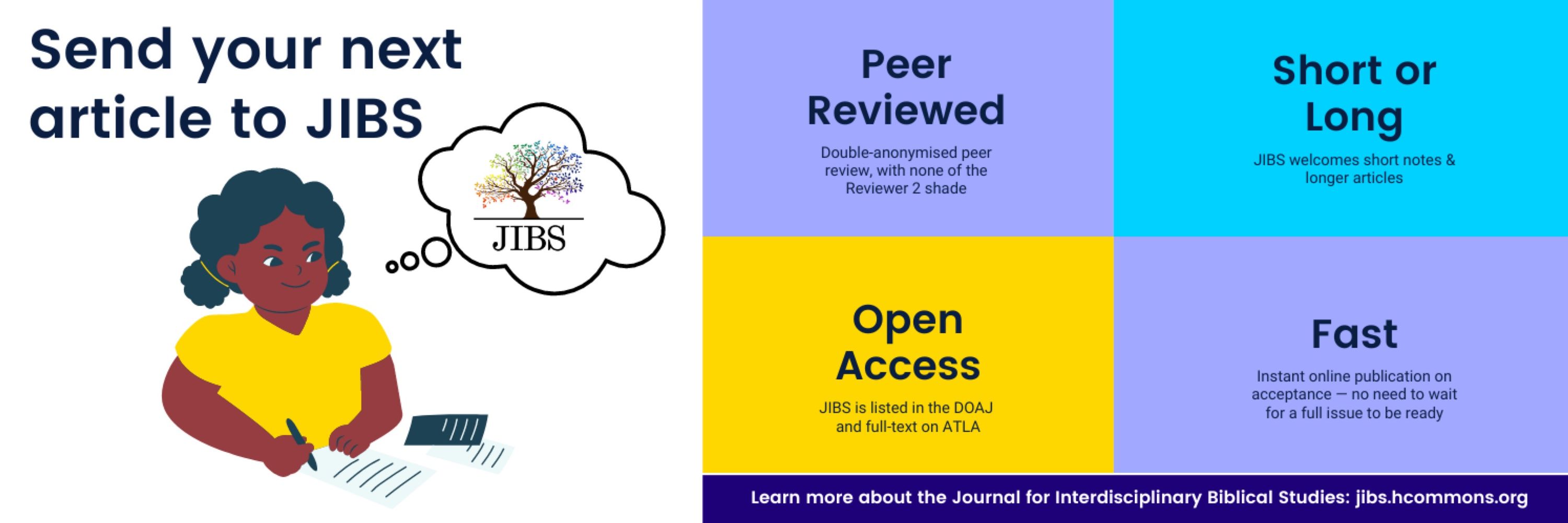Journal for Interdisciplinary Biblical Studies
@jibs-journal.bsky.social
1.7K followers
290 following
40 posts
JIBS is a peer-reviewed, open access journal dedicated to publishing cutting edge articles that embody interdisciplinary, social justice-oriented, feminist, queer, trans-inclusive and innovative biblical scholarship. Find us at https://jibs.hcommons.org/
Posts
Media
Videos
Starter Packs
Reposted by Journal for Interdisciplinary Biblical Studies
Reposted by Journal for Interdisciplinary Biblical Studies
Reposted by Journal for Interdisciplinary Biblical Studies
Reposted by Journal for Interdisciplinary Biblical Studies
Reposted by Journal for Interdisciplinary Biblical Studies

